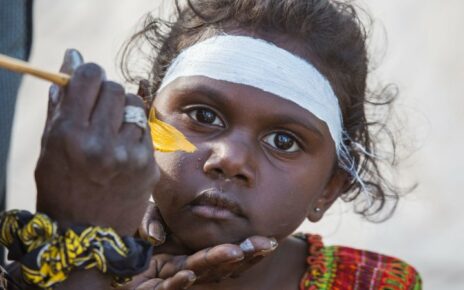Croatia’s Drugi Plan and Bulgaria’s Agitprop, two of the leading production outfits in Southeast Europe, have been attached to co-produce the upcoming drama series “Sabre,” a political thriller revolving around the 2003 assassination of Serbian Prime Minister Zoran Djindjic produced by Belgrade-based This and That Productions.
Created by Goran Stanković and Vladimir Tagić, the series will star Serbian-Danish actress Danica Curcic, known to international audiences for her lead role in the Netflix psychological thriller “The Chestnut Man,” as a reporter investigating the shocking murder.
The companies announced the deal on Monday at the Sarajevo Film Festival, where This and That’s “Bad Blood” and Drugi Plan’s “The Silence” were among the top Balkan drama series vying for Heart of Sarajevo TV Awards, which were handed out at a ceremony in the Bosnian capital on Sunday night.
“Sabre” was first pitched in Sarajevo three years ago during the CineLink Drama co-financing forum, where it was named best drama project. Last year the series participated in the Midpoint TV Launch international script and development program.
The series examines Djindjic’s assassination and its political repercussions through the eyes of three characters — the reporter, a police inspector and a young criminal — while following the impact it has on their lives.
Set in 2003, “Sabre” unfolds at a time when Serbia was struggling to emerge from a bloody decade of transition in the former Yugoslavia. Speaking to Variety in Sarajevo, Stanković described the prime minister’s shocking murder in broad daylight as “a turning point to this day for the whole Balkan region,” while Drugi Plan co-founder Nebojša Taraba called it “a JFK moment” for the emerging democracies of the ex-Yugoslavia, including Croatia, adding: “That’s why we love to be a part of this story.”
Taraba’s Zagreb-based company, which sold a majority stake to Beta Film two years ago, is the production outfit behind the political crime thriller “The Paper,” which was acquired by Netflix, and the Croatian-Ukrainian crime drama “The Silence,” which was picked up this year by HBO Max.
He described “Sabre” as a natural fit for the company’s ambitious slate of high-end drama, while pointing to how it reflects a growing desire by the region’s top independent producers to apply the same international co-production model to drama series that have long bolstered the region’s film industries.
“The Silence,” for example, was produced by Drugi Plan and Croatian broadcaster HRT in co-production with Beta Film, Russia and Ukraine-based Star Media, Ukraine’s OLL.TV and ZDF/Arte. Other projects on the company’s slate include “Anatomy of a Crime,” a crime drama set in 1960s Yugoslavia co-produced with Serbian production outfit Film Fantastika, and “The Possibility of an Island,” a first-of-its-kind co-production between the Balkans and Scandinavia, which Drugi Plan is co-producing with Iceland’s Grass River.
The co-production with Agitprop comes with the news that “Sabre” will be the first ever international co-production to benefit from a new fund from the Bulgarian National Film Center supporting TV drama, something Martichka Bozhilova, of Sofia-based Agitprop, described as a “pioneering moment” for production in Southeast Europe.
“I am very proud and excited to be part of this pioneering moment, which is the first ever support of any National Film Center in this part of the world for a production of TV series,” she said, crediting her co-producing partners from This and That and Drugi Plan as “a team I believe in.”
“This story opens up very important issues that we need to know about and discuss, and I am very fond to be a part of telling it.”
“Sabre” is produced by Snežana van Houwelingen for This and That Prodctions and co-produced by Nebojša Taraba and Miodrag Sila for Drugi Plan and Martichka Bozhilova for Agitprop, with the support of Serbian public broadcaster RTS, the Bulgarian National Film Center and the European Union’s Creative Europe – MEDIA Program.
Pictured: Goran Stanković (l.) and Vladimir Tagić
Read More About:
Source: Read Full Article
